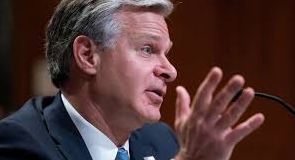Governor Mike Dunleavy Seeks Asian Investment for Alaskan Gas Project Amid Trade Negotiations
Governor Mike Dunleavy of Alaska is set to brief U.S. President Donald Trump next week on the latest developments concerning a major natural gas project aimed at securing backing from Asian markets, following his recent visit to Japan and other countries. The project, which has become a focal point in the ongoing trade and tariff discussions, has been a key interest for Trump, who wants Japan, South Korea, and Taiwan to join in.
Dunleavy, accompanied by executives from the state-run Alaska Gasline Development Corporation (AGDC) and development partner Glenfarne Group, toured Taiwan, Thailand, South Korea, and Japan, seeking long-term buyers and investors. Dunleavy highlighted that foreign investments in U.S. energy resources are vital for both economic and geopolitical reasons, especially as the U.S. faces increasing trade tensions with key allies.
In a conversation with Reuters in Tokyo, Dunleavy explained that purchasing gas and investing in U.S. projects could support federal negotiations surrounding trade and tariffs. He also noted that while no formal commitments had been made by South Korea or Japan, Taiwan had expressed strong interest, committing to a letter of intent to purchase 6 million metric tons of liquefied natural gas (LNG) annually.
The timing of the visit coincides with intensified trade pressure from the U.S. On March 27, Trump announced a 25% tariff on imported cars and light trucks, set to take effect on April 3, which directly impacts Japan and South Korea’s auto industries.
The Alaskan gas project aims to transport natural gas from Alaska’s northern regions via a 1,300 km (800-mile) pipeline, costing an estimated $44 billion. Once at the southern coast, the gas will be liquefied and shipped to East Asia.
Trump has repeatedly advocated for international support for the project, claiming that it could provide a significant economic boost to the U.S. economy. His recent conversations with Japan’s Prime Minister Shigeru Ishiba highlighted his hope for Japan’s involvement. However, Japanese energy companies, such as Inpex Corp, have expressed doubts about the project’s financial viability.
While in Tokyo, the Alaskan delegation also met with Japan’s Minister of Economy, Trade, and Industry, Yoji Muto, and discussed the project with South Korea’s Trade Minister Ahn Duk-geun in Seoul.
Detailed project designs are expected to be ready by the third quarter of this year, with a final investment decision anticipated by the end of 2025. This timeline could allow Asian buyers to commit to purchasing gas from the liquefaction plant, provided the project can offer competitive pricing. U.S. investors are expected to provide most of the financing for the pipeline, while equity investments from Asian buyers will likely be linked to long-term gas offtake agreements.








